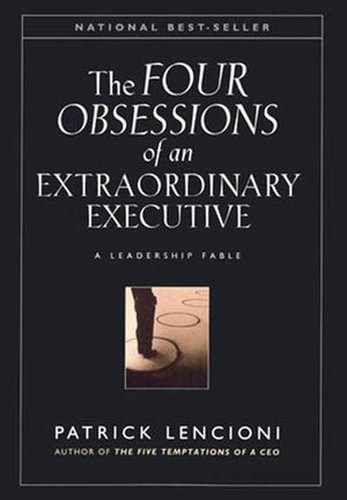PRACTICE
When Rich woke the next morning, his sense of relief from the previous evening had faded somewhat. But when he arrived at work, he removed the yellow paper from his briefcase, stared at it for a few minutes, and felt his excitement begin to resurface almost immediately.
Taping the yellow list to the top of his desk, Rich could not stop thinking about the four disciplines that he had discovered the previous night. For the next few mornings, he began his day by reviewing the list and making necessary adjustments to his schedule. After only a week, Rich’s mind-set had begun to change dramatically.
Within a few more weeks, Rich found himself thinking very little about his competition, and he lost interest in many of his previous duties, like reviewing monthly billing records and expense details. He was leaving the office at 6:30 every evening, and without his usual portfolio of reports and other reading material.
More and more of Rich’s responsibilities were being delegated to his staff members, who were quietly speculating that he might be preparing to let go of the business.
But soon it became clear to everyone that Rich was more engaged than he had been in almost a year. In spite of his delegation of various responsibilities, Rich’s meetings took on a new sense of urgency and clarity. In fact, after just a few months, his staff saw his management style evolve toward a simpler, more focused approach.
During meetings, Rich asked more pointed questions than ever before. He resisted the temptation to dive into each and every topic, if the temptation still existed at all. Perhaps most important, and certainly most notably, he spent more time listening during staff meetings, and when he did jump into a conversation, it was usually to refocus people on the topic at hand.
Over the course of the year, Telegraph flourished and became the clear darling of the technical consulting arena.
During that time Rich guarded his schedule ferociously. Aside from occasional client visits and the unavoidable formalities required of a chief executive, everything that he did had something to do with at least one of the disciplines on “the yellow sheet,” as it came to be known by a few of the Telegraph executives. They often teased Rich, accusing him of being obsessed with the list. But no one complained about it.
Interestingly, only a handful of people actually knew what was on the yellow sheet, which was odd because Rich didn’t take any steps to conceal it or keep it confidential. But few people ever asked about it, and so it remained something of a mystery, which was okay with Rich because no one else really needed to understand it.
He certainly never suspected that it would become the blue-print of an employee’s plan to destroy the firm.
..................Content has been hidden....................
You can't read the all page of ebook, please click here login for view all page.
